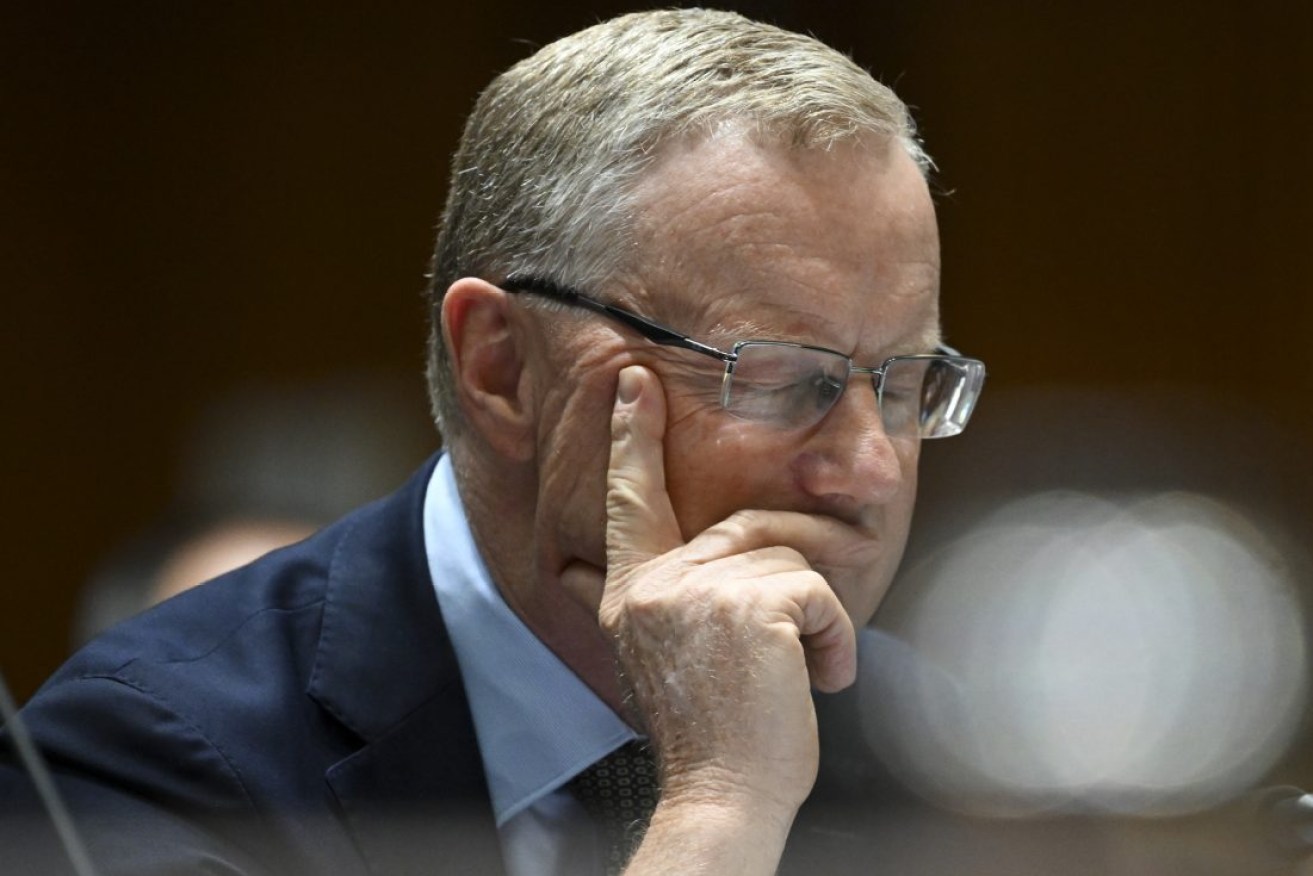Lowe blow: Another shock sends rates up again as inflation spooks RBA
The Reserve Bank board has lifted interest rates again and warned that the hikes may be far from over.


RBA governor Philip Lowe speaks during a House of Representatives economics standing committee hearing at Parliament House in Canberra, Friday, September 16, 2022. (AAP Image/Lukas Coch)
After a pause in April to reassess the impact of a series of increases, the bank hiked rates by another 0.25 per cent to 3.85 per cent to combat inflation that it said was still too high.
And it also indicated that there could be more to come and that sent a rising sharemarket into a tail spin, losing more than 50 points in the matter of seconds. It fell further to be more than 70 points down near the close of market.
“Some further tightening of monetary policy may be required to ensure that inflation returns to target in a reasonable timeframe, but that will depend upon how the economy and inflation evolve,” RBA Governor Philip Lowe said.
On a $500,000 loan, the 0.25 per cent increase would add $82 to the monthly cost of a mortgage. That adds up to $1131 since April last year, according to Canstar.
For a loan of $750,000, the extra cost in repayments was $124 a month and $1700 since April, last year.
The cash rate has now been hiked by 375 basis points since May 2022.
Head of Deloitte Access Economics Pradeep Philip said the increase showed the bank was still playing recession roulette and the increase was unnecessary given that the 10 previous hikes were still working their way through the economy.
“Last week’s CPI data showed inflation is clearly slowing and the fact it is doing so while unemployment remains at record lows is a good thing,” he said.
Tiger Brokers said it believed there would be another rate increase in winter.
The Real Estate Institute of Queensland said economic conditions were already stifling housing supply and it was vital that State and Federal governments did more to combat inflation.
IFM economist Alex Joiner said the RBA‘s forecast was for slightly weaker growth this year. “So much so it implies a per capita GDP recession,” he said.
In his statement, Lowe said inflation was past its peak but at 7 per cent it was still too high.
“Goods price inflation is clearly slowing due to a better balance of supply and demand following the resolution of the pandemic disruptions, but services price inflation is still very high and broadly based and the experience overseas points to upside risks. Unit labour costs are also rising briskly, with productivity growth remaining subdued.












